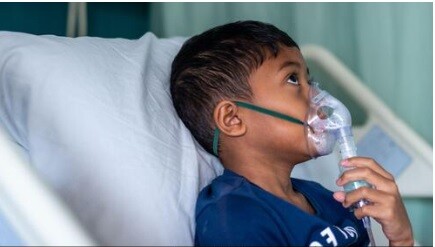Basic care at home and up-to-date vaccination manuals are effective measures to prevent influenza, colds and other illnesses.
With the advent of autumn, it is common to see an increase in respiratory diseases associated with hypothermia. The Rodolpho Perissé Municipal Hospital (HMPR) in Buzios recorded an increase in the influx of people, with about 500 to 600 daily visits of patients from the city and the region, including children with respiratory crises.
According to HMP Director Priscila Gasparetto, the incidence of respiratory diseases has a seasonal pattern, with well-defined peaks during autumn and winter. The average daily attendance to the unit’s emergency room is 70 children, a number that can double in the dry season due to these respiratory conditions.
The main generators of these problems are respiratory syncytial virus (RSV), influenza A and B, influenza Para and Adenovirus. Together, these viruses make up about 50 to 90% of cases in children. The most affected children are children under two years of age, with a history of chronic allergies and wheezing, as well as those with a family history of asthma. “They require emergency medical attention and have a worse respiratory condition that usually requires hospitalization,” Priscilla details.
protection
In light of this scenario, the Búzios Municipal Health Department warns of the importance of prevention and basic care at home, such as keeping the home airy and clean, eating a balanced diet and good hydration. In addition, updating the vaccine handbook is essential for preventing influenza, colds, and other illnesses.
Buzios Epidemiological and Environmental Monitoring Coordinator, Aline Gomez, stresses that “people should not fail to take the influenza/influenza vaccine annually, and now, the booster dose with bivalent, which protects against Covid-19, and it can have to be taken at the same time as the flu.” Patients who already suffer from chronic respiratory diseases should not give up treatment, and not take medications prescribed by a doctor.
It is important to stress that influenza and cold are infections caused by viruses entering the respiratory tract, which can cause fever, cough, sore throat, nausea, and lack of appetite. Since it is lighter, a cold does not present many risks, but it is still important to seek medical help to treat it, as well as the flu, which in turn can develop into pneumonia.
Parents and guardians of children should take measures to prevent respiratory infections, such as frequent hand hygiene.

“Writer. Analyst. Avid travel maven. Devoted twitter guru. Unapologetic pop culture expert. General zombie enthusiast.”


